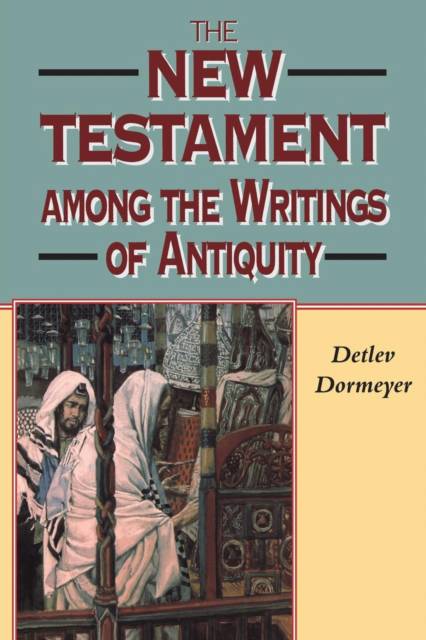
- Retrait gratuit dans votre magasin Club
- 7.000.000 titres dans notre catalogue
- Payer en toute sécurité
- Toujours un magasin près de chez vous
- Retrait gratuit dans votre magasin Club
- 7.000.000 titres dans notre catalogue
- Payer en toute sécurité
- Toujours un magasin près de chez vous
Description
In this useful work, Dormeyer assesses the influence of Hellenistic culture upon the New Testament as a literary work. There is no denying the impact of Jewish literature upon the New Testament, but even those Jewish antecedents were themselves not infrequently imprinted with Hellenistic characteristics. Dormeyer's method is to consider in turn the literary forms (Gattungen) of the New Testament, outlining with many examples the parallels between the New Testament and Hellenistic literature. The Synoptic sayings, for instance, are closest in character to the Hellenistic gnome, though the representation of Jesus as an eschatological and prophetic wisdom teacher shows a marked difference from other teachers of wisdom in Hellenistic circles. Other areas of close correspondence with Hellenistic literature lie in the form and rhetoric of the New Testament epistles, and in the structure of the Gospels, which invoke the canons of Hellenistic historiography and biography. Throughout, Dormeyer is at pains to stress the contours of the special quality of the New Testament literature as the product of a quite small community that nevertheless brought into being a number of authors of exceptional talent.
Spécifications
Parties prenantes
- Auteur(s) :
- Editeur:
Contenu
- Nombre de pages :
- 328
- Langue:
- Anglais
- Collection :
Caractéristiques
- EAN:
- 9781850758600
- Date de parution :
- 01-07-98
- Format:
- Livre broché
- Format numérique:
- Trade paperback (VS)
- Dimensions :
- 156 mm x 234 mm
- Poids :
- 458 g







